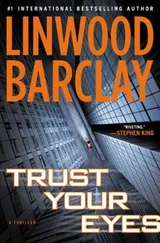Bixby Bridge. 1932. Linda used to yell, “1932!” as if it was a very significant year. “What do you think Big Mort and Bubbe were doing in 1932?” They were still children, though Big Mort was already working as a stock boy, on the other side of the country, in apartments in the Bronx and Brooklyn. They went to sleep with their brothers and sisters, four to a bed, and they shined their worn shoes and saved up for a piece of penny candy or a potato chip. Jesse’s parents were alive then, too, his father the son of an ambitious grocer, his mother a future debutante. Jesse’s great-grandfather had been alive during the Civil War, his childhood home destroyed in Sherman’s March. Meanwhile Linda’s great-grandparents were in Russia, where their homes were also destroyed. Different story.
Lee remembered being on the beach here with Linda and Monty — yes, it was Monty. “Seals!” Linda cried, pointing to a rocky outcropping in the water, and Monty made barking noises. Seals were a good omen, Linda said. But those were sea lions, Lee pointed out, not seals. Were sea lions also a good omen? she asked. Linda said, “You are so much your father sometimes.” Before Linda could say anything else, before Lee could comprehend the look in her eyes, Monty rushed Linda, threw her over his shoulder, and ran with her along the dark sand.
The road began to curve away from the ocean, out of the sun and into the wooded coolness. They were getting closer to the turn-off that would take them to Marion’s place. Lee wasn’t going to turn back, but if something had gotten in their way, a roadblock, a rockslide, a rabid mountain lion frothing on their hood, she might have been secretly relieved. She hadn’t felt this urgent toggling on the way to Flintwick’s or to see the Carnahans or Patti Driggs.
With Bill Carnahan she’d dreaded the return to a certain way of interacting with men that made her feel ashamed. She had actually tried to pretend she was undercover, like in one of Roy’s old procedurals, when you got to see the hot actress in a dress instead of her usual street cop clothes, putting herself in danger for the sake of some greater civic purpose. But Lee was putting herself in danger only for the sake of putting herself in danger. Carnahan hadn’t made much of a physical advance on her, though. When he got her alone, he had merely brushed her cheek with the back of his manicured fingers and likened her skin to the soft inside of a flower petal, asked if she knew what the Japanese expression mono no aware meant. In retrospect, it was absurd, but in the moment, she’d felt stripped. As though footage of every past humiliation were being played on a screen behind her and Carnahan was watching it all. She’d tried to think what Viv might do in her place, but Viv wouldn’t be in her place. So then Lee thought: What would my mother, my inviolable, indefatigable mother, do? Keep him talking by pretending you’re slightly interested in what he says. Give him something, but not too much. Be like the photographs of your father. When this worked, Lee felt as though Linda had been with her. She was grateful, and even unnervingly proud.
MARION LIVED INa redwood cottage built into a hillside at the end of an unpaved road. The sun shone in one direction and shadows crossed the other so that grasses, succulents, purple wildflowers, and a lemon tree grew out front, while in back a creek ran below a leafy canopy. No wind chimes. No stained glass sun catchers in the windows. No New Age tchotchkes. None of that. She came to the door, a slim woman of average height in a white shirt, chinos, and red espadrille flats, a few thin silver bangles at her wrist, her hair cut in a short Afro. The Marion in Lee’s memory wore silk dresses, huge sunglasses, platform shoes. Her fluffy hair fell over her shoulders.
“You really do look just like both of them,” said Marion as they introduced themselves. “It’s astonishing.”
“Genetics,” said Lee, not knowing what else to say just then, immediately regretting how it made Marion’s remark sound obvious and left little room for expansion, which hadn’t been her goal at all. It was like something she would say to Linda to shut her down. God.
“I can’t get over how beautiful it is,” said Viv, relieving them all of the silence. “You get to live here.” She started them on a course of conversation by which they learned that Marion had moved here more than twenty years ago and lived by herself for the most part. She had never married. Morris was her mother’s maiden name and she had adopted it after the accident.
Marion lead them into an open room where the sun streamed in through the windows onto a Mexican rug covering a rustic floor made of thick pine planks. White walls and a white, acrylic-topped dining table offset the woodsiness, as did an arcing chrome lamp in the corner. The furniture could have been recently purchased or could have been decades old and in good shape because it saw so little wear and tear, since it was so often just Marion here, alone. She had art on the walls, a hanging textile, a couple of deeply saturated abstract paintings and a few drawings. A framed postcard — or maybe a headshot — of an older man in a suit, an inscription inked across the top, but Lee couldn’t make out what it said or who it was. No pictures of family or friends, though perhaps she kept those in a different room.
Lee recognized someone or something in Marion’s manner, how she was both guarded and open, as though one was a corrective to the other. Almost as though they were paint colors that she was mixing every so often. It took Lee a minute to realize it was herself she recognized.
Marion brought out a tea tray and a cutting board with wedges of cheese, a jar of jam, and a loaf of bread. A pain de campagne. Lee knew Linda would call it a PDC. Oh, this PDC is to die for! Rather, this PDC is TDF!
Marion poured the tea into cups on saucers. She asked about their trip, where they’d been before coming here. They told her about Flintwick (“Charlie had no use for me,” Marion said. “He thought I was a distraction and a nuisance. But he always had a strange relationship with women in general”) and about the Carnahans (“The trouble with late capitalism,” she said). They told her about Patti Driggs, who had led them here. (“Patti would have eviscerated me if I’d talked to her. Even if that wasn’t her intention, it would have been the result.”) Lee held off mentioning the Haseltine photos, Big Mort’s pendant on the dresser.
“So you remember Charlie Flintwick,” Lee said, “from back then?”
“Right. There’s that small matter of my coma. My memory loss.” A little deprecatory: comas and amnesia — so melodramatic. “Look, people hated me back then,” she said. Public opinion had never been kind to Marion. In the instances where she was treated as more than a footnote, she was characterized as self-interested, careless, and parasitic. She was only nineteen. At that age, independence is intertwined with self-interest, freedom with carelessness. It’s tempting to grab on to people you shouldn’t. Viv at nineteen, when Lee met her.
“People still hate me. Still! I do own a computer. You can’t help but read things. But these are people who didn’t know me and didn’t know Jesse. That not-knowingness leads to a purer hatred. It’s an innocent hatred, untouched by reality. And maybe more dangerous, in a way. It’s hard to know how to react to that kind of hatred. All I knew is that after the crash I didn’t want to talk to journalists or anybody, and it was easy when I had nothing to say on the subject. That coma was the best excuse I ever had.”
“I write for a soap,” said Viv, “and when we get stuck on a plot point my boss likes to say, ‘I hear a coma a’callin’!”
Читать дальше












